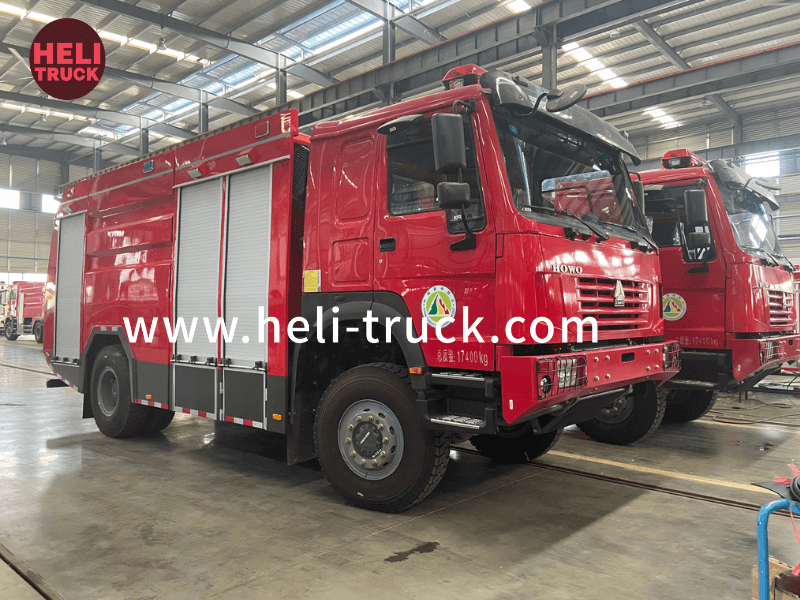Introduction
Water is a vital resource essential for various industrial activities, from manufacturing to construction. The efficient and sustainable supply of water to industries is crucial for ensuring smooth operations and minimizing environmental impact. Water tank trucks play a key role in providing industrial water supply, offering a flexible and cost-effective solution for businesses in need of large quantities of water. This article explores the importance of water tank truck industrial water supply, its benefits, challenges, and strategies for maximizing efficiency and sustainability.
Importance of Water Tank Truck Industrial Water Supply
Water tank trucks are specifically designed to transport and deliver large volumes of water to industrial sites where access to water sources may be limited or unavailable. These specialized vehicles are equipped with tanks that can hold thousands of gallons of water, making them ideal for industries that require substantial amounts of water for processes such as cooling, cleaning, and dust suppression. Without a reliable water supply, industrial operations can be severely disrupted, leading to delays, increased costs, and potential risks to worker safety.
Benefits of Water Tank Truck Industrial Water Supply
1. Flexibility: Water tank trucks offer flexibility in terms of delivery locations and timing. They can access remote or difficult-to-reach industrial sites where traditional water supply infrastructure may be lacking.
2. Cost-Effectiveness: Using water tank trucks for industrial water supply can be more cost-effective than investing in permanent water supply infrastructure, especially for temporary or mobile operations.
3. Reliability: Water tank trucks provide a reliable and on-demand water supply, ensuring continuous operation of industrial processes without interruptions.
4. Environmental Sustainability: By utilizing water tank trucks for industrial water supply, businesses can reduce their reliance on freshwater sources, contributing to water conservation efforts and minimizing the environmental impact of their operations.
Challenges of Water Tank Truck Industrial Water Supply

Despite the numerous benefits of water tank truck industrial water supply, there are also challenges that businesses may encounter:
1. Regulatory Compliance: Industries must comply with regulations regarding water usage, discharge, and environmental impact. Ensuring that water tank truck operations meet these regulatory requirements can be a challenge.
2. Water Quality: The quality of water supplied by water tank trucks must meet industry standards to prevent contamination and ensure the safety of industrial processes and products.
3. Logistics: Coordinating water tank truck deliveries, managing schedules, and optimizing routes can be complex, especially for industries with multiple sites or varying water supply needs.
4. Maintenance and Upkeep: Water tank trucks require regular maintenance to ensure their proper functioning and longevity. Neglecting maintenance can lead to breakdowns, delays, and increased costs.
Strategies for Maximizing Efficiency and Sustainability
To overcome the challenges associated with water tank truck industrial water supply and maximize efficiency and sustainability, businesses can implement the following strategies:
1. Invest in Advanced Technology: Utilize telematics and GPS tracking systems to monitor water tank truck operations in real-time, optimize routes, and improve efficiency.
2. Implement Water Recycling and Treatment Systems: Integrate water recycling and treatment systems into industrial processes to reduce water consumption, minimize waste, and enhance sustainability.
3. Collaborate with Water Management Experts: Partner with water management experts and environmental consultants to assess water usage, identify opportunities for improvement, and ensure compliance with regulations.
4. Conduct Regular Training and Maintenance: Provide training for water tank truck operators on proper handling and maintenance procedures to prevent breakdowns, extend the lifespan of vehicles, and minimize operational disruptions.
5. Monitor Water Quality: Implement regular water quality testing and monitoring to ensure that the water supplied by tank trucks meets industry standards and regulatory requirements.
Conclusion
Water tank truck industrial water supply plays a critical role in supporting the water needs of various industries, offering a flexible and cost-effective solution for businesses facing water supply challenges. By understanding the importance of water tank trucks, recognizing their benefits, addressing challenges, and implementing strategies for maximizing efficiency and sustainability, industries can enhance their operations, reduce environmental impact, and contribute to a more sustainable future. Embracing innovative technologies, prioritizing water quality and conservation, and fostering collaboration with water management experts are key steps towards achieving a reliable and sustainable industrial water supply system.
